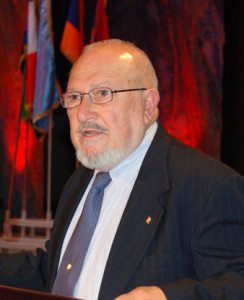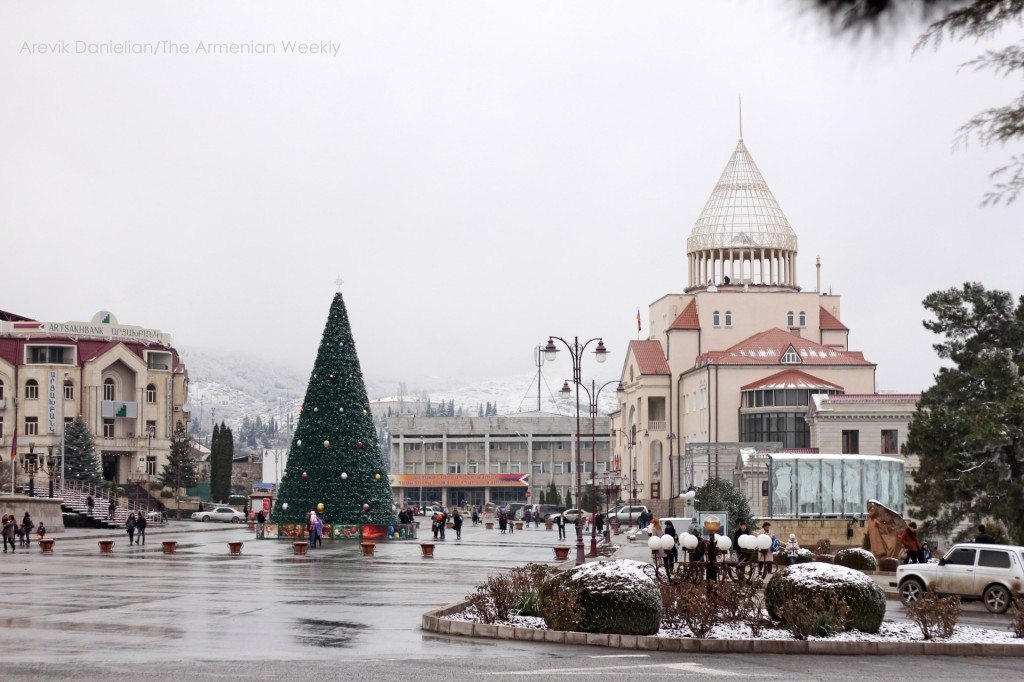The NSW Parliament recently passed
a resolution condemning the genocide perpetrated by the Ottoman empire
against its Assyrian, Pontic Greek and especially Armenian communities
during the Great War.
The Turkish Consul-General in Sydney, the foreign ministry
in Ankara and even the city council in Çanakkale (Gallipoli)
immediately responded. They deny that the genocide had even occurred and
have warned state parliamentarians that they will not be welcome in
Turkey when the two nations commemorate the centenary of the Gallipoli
campaign in 2015.
Australians unaware of the details might be surprised at
the vehemence of the Turkish response. Aren’t Turkey and Australia
friends? Don’t the Turks generously welcome Australian and New Zealand
visitors to Gallipoli throughout the year but especially in April? What
have we done to offend them?
The answer is that the parliamentarians have had the
temerity to acknowledge the truth about one of the great crimes against
humanity of the twentieth century. (Let’s for the moment put aside the
question of whether a parliament’s view is even relevant. If the
parliamentarians had resolved that the genocide had not happened it
would still be an historical fact. But both Turks and Armenians regard
legislative endorsement of their version of the past as scalps, and the
Armenians are winning.)
Australians have been captivated by the Turkish narrative
of Gallipoli. The Turkish nation has built around the campaign (in which
they defeated a British (and Anzac) and French invasion of Turkish
soil) a national epic of salvation. That Mustafa Kemal Atatürk, the
father of the modern Turkish nation, commanded some of its defenders
makes Gallipoli part of Turkey’s national founding myth. In this the two
nations have something in common.
The problem is that the day before the 1915 invasion, the
Ottoman empire, suspicious of its Armenian minority, embarked upon the
systematic elimination of the empire’s Armenian population. Impartial
scholars accept that about a million-and-a-half of the empire’s two
million Armenians were killed directly or died of starvation and
sickness over the next few years. Neutral missionaries and diplomats,
and even Turkey’s German allies witnessed and reported the massacres and
deportations – as did Anzac prisoners of war.
The world was outraged at the time, and the surviving
Armenian community, including a substantial Armenian diaspora in the
Middle East, Europe, North America and Australia, has never forgotten
it. Turkey, on the other hand, denies that genocide occurred, disputing
its definition in international law or arguing that while villagers may
have been deported they died of incidental causes.
The NSW resolution disrupts the astoundingly successful
charm offensive Turkey has conducted in Australia for years, fostering a
positive relationship with Australia through the shared ordeal of
Gallipoli. The NSW resolution, instigated by Australia’s energetic
Armenian National Council and promoted by the Christian Democrat MP Rev.
Fred Nile (but also by the premier Barry O’Farrell), has upset
Australia’s acquiescence with Turkey’s desire to emphasise the shared
history of Gallipoli while eliminating any reference to the genocide.
You might argue that the Armenian genocide is remote from
the Australian experience of the Great War. In fact, Australian troops
(both prisoners of war and as combatants) encountered the genocide and
its effects, and Australian civilians contributed vast amounts of money
and time to the international relief effort mounted from 1915 and for
years after. In effect, Australian troops in the Middle East were
fighting to defeat a regime capable of state sponsored atrocity, just as
Australia’s forces in the Second World War were fighting to defeat the
regime responsible for the Holocaust. The Armenian genocide is part of
the story of the Great War, something to which Australians should not be
blind, and certainly not blinded by Turkish denial.
The controversy obliges Australians to take sides. I am an
impartial historian, having been convinced of the facts by the
historical evidence. That claim makes me immediately suspect in Turkish
eyes. I suppose I’ll be banned as well. But having examined the
evidence, I am co-writing a book on Australia and the Armenian genocide.
As President of the recently-formed coalition Honest History, dedicated to standing up for honesty in our relationship to the past, I cannot connive at the falsification of history.
Australia and Turkey are friends. But friends tell each
other the truth. They don’t react like children – ‘if you say that you
can’t be my friend anymore!’ Turkey’s extraordinary response to the NSW
parliamentarians will oblige Australians to choose between being a
friend of Turkey or being a friend of the truth. I know which way I
choose.
 Professor Peter Stanley is a military historian at the University of NSW, Canberra.
Professor Peter Stanley is a military historian at the University of NSW, Canberra.Armenian Genocide Protest image from Shutterstock.com





Peter Stanley